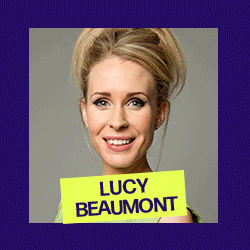
Comedy loves misery. That’s the theory. That’s why grumpy Tony Hancock was so funny. That’s why Les Dawson made a hit out of rarely cracking a smile. And more recently Jack Dee’s perma-scowl has been part of the secret of his success.
One of the things I noticed in Edinburgh this year was the number of comedians grappling with the contradiction of being happy and successful and still trying to find the funny. Luisa Omielan brought it up in her show, explaining that her first hit was all about her struggles with depression, but that now she was no longer depressed how was she going to write a show? Needless to say she managed it.
Elsewhere John Robins wondered if he could come up with a funny show now that he was all loved up. And John Kearns talked about how his Best Newcomer breakthrough show was all about his struggles to make it in comedy. Now he had made it what would he talk about this time? He managed it of course and won the Foster’s Award main prize in the process.
So what is this thing about the connection between comedy and misery? It has been discussed a lot recently in the light of Robin Williams’ suicide. A number of comedians on the Fringe were talking about their battles with depression – Mark Watson and Ray Peacock, for example. Emotional ying and yang is a rich subject for comedy. The contrast between laughs and tears, the contrast between loneliness and performing to packed houses, the pressure to make people chuckle night after night while you are hurting inside. Comedians seem able to find the funny in the darkest of places.
But the idea that being miserable somehow helps you to be a successful comedian is clearly a fallacy. There are plenty of comics, from Eric Morecambe to Frank Skinner, who have had happy lives offstage. And this year the likes of John Kearns, Luisa Omielan and John Robins showed that they can be just as funny when their lives and careers or on track as they are when their lives and careers are in danger of being derailed. Let's get something straight once and for all. Comedy might love misery, but it doesn’t need misery.






